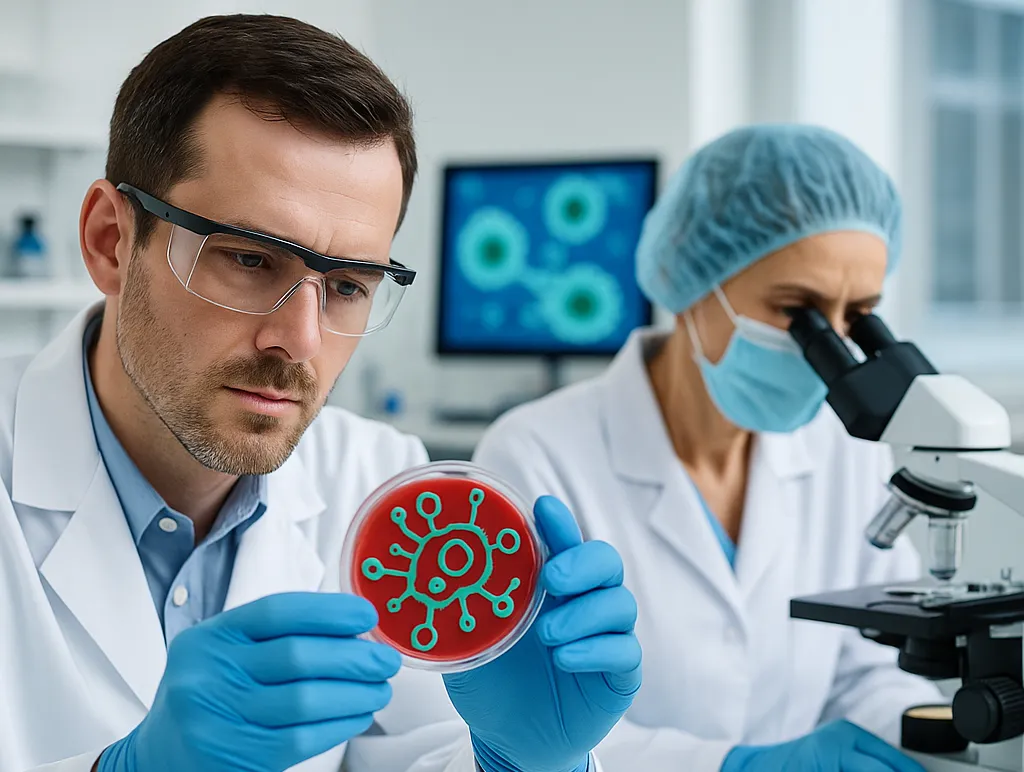
Parkinson’s Disease
Step into a new era of healing at Infinity Stem Cells, where cutting-edge science meets the body’s innate potential. Our advanced cell regeneration therapies, centered on mesenchymal stem cells (MSCs), harness the transformative power of cellular renewal to address a wide range of conditions, restoring vitality and igniting wellness from within.
|
|
|
|
|
|
|
What is Parkinson’s Disease
Parkinson’s Disease is a chronic, progressive neurological disorder that affects movement and coordination. It occurs when dopamine-producing neurons in the brain begin to degenerate, leading to tremors, muscle stiffness, and slow movement.
Parkinson’s typically develops in people over 60, though younger individuals can be affected (early-onset Parkinson’s). The exact cause is unknown, but it likely involves a combination of genetic and environmental factors. While Parkinson’s is not life-threatening in itself, its complications can significantly impact quality of life over time.

What Are the Symptoms?
Parkinson’s symptoms usually begin gradually and worsen over time. Common signs include:

Tremors in the hands or fingers

Slowed movements

Muscle stiffness in arms, legs, or trunk

Balance and coordination issues

Speech and writing difficulties

Facial expression loss
Current Treatments
for Parkinson’s Disease
While there’s no cure for Parkinson’s, treatment focuses on managing symptoms and improving daily life:
Medications like Levodopa and dopamine agonists help control movement and balance brain chemicals.
Deep Brain Stimulation (DBS) is a surgical option for advanced cases to reduce motor symptoms.
Therapies improve mobility, speech, and daily function.
Lifestyle changes such as exercise and a healthy routine support overall well-being.
Mental health support addresses mood, anxiety, and cognitive challenges.
What Are the Outcomes?
Parkinson’s is a progressive disease, but many people live for decades after diagnosis, especially with proper treatment and support. Symptoms tend to worsen over time, but individualized care can help maintain independence, mobility, and overall well-being. Regular monitoring and therapy adjustments are key to long-term management.
Stem Cell Therapy for Parkinson’s Disease
Stem cell therapy is a promising experimental treatment aimed at replacing lost dopamine-producing neurons in the brains of people with Parkinson’s. The goal is to restore normal brain function and potentially slow or reverse disease progression.
Potential Benefits:
Replaces damaged brain cells
Improves motor function and reduces tremors
May reduce need for medication over time
Currently, stem cell therapy for Parkinson’s is in clinical trial stages. While results are encouraging, it is not yet a widely approved treatment. Patients interested in this approach should consult with neurologists and explore participation in ongoing research studies.
Science, Simplified: Our Therapy Process
It’s important to note that stem cell therapy for autism is still experimental, and not approved as a standard treatment. Families should consult healthcare professionals and thoroughly research clinical trial options.
Site
Target
Depth
Forehead & Eyes
Cheeks & Jawline
Under-Eye Area
Full Face
Wrinkles, crow’s feet
Volume loss, elasticity, hydration
Dark circles, fine lines
Texture, glow (via microneedling)
1–2 mm (superficial dermis)
2–4 mm (deep dermis)
1–1.5 mm (cautious use)
0.5–1.5 mm

Why Consider
Stem Cell Therapy?
Non-surgical and outpatient
Focuses on long-term healing, not just symptom relief
Supported by early-stage clinical research
Ethically sourced, high-quality regenerative cells
Find Out If You're a Candidate >>
Talk to an Expert >>
Explore the Science Behind It >>
Frequently Asked Questions
Is this FDA-approved?
Stem cell therapies using ethically sourced regenerative cells are regulated under strict guidelines by the FDA. While certain applications have explicit FDA approval, others are administered under FDA guidelines as investigational therapies, complying fully with regulatory standards to ensure safety and quality.
What are the risks or side effects?
Stem cell therapy is generally safe with minimal risk. Common mild side effects can include temporary soreness, swelling, or minor bruising at the injection site. Rarely, more serious complications such as infections or allergic reactions can occur. Our medical team thoroughly evaluates each patient to minimize these risks.
How long until I feel results?
Patients often notice initial improvements within days to weeks, with more substantial benefits progressively occurring over the following months as the regenerative process continues. Individual experiences can vary depending on the condition's severity and personal health factors.
How many sessions are required?
Many patients experience significant improvements after a single session. However, depending on individual conditions and response to treatment, additional sessions may be recommended to maximize outcomes. Our specialists provide personalized recommendations during your consultation.
Is this covered by insurance?
Insurance coverage varies depending on the specific policy and condition being treated. While regenerative therapies are not universally covered, some plans offer partial or full coverage. Our administrative team will assist you in verifying insurance coverage and exploring financial options to support your treatment.
Connect with Us
Quick Links
Copyright© 2025 Scientific Infinity - All Rights Reserved.
